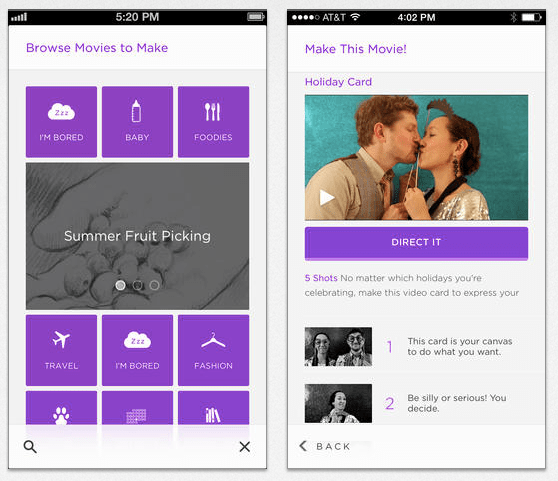Directr: Google's YouTube Acquires Mobile-Video Startup

Google said it has acquired Directr, a startup that developed a mobile app for small businesses to create videos, which will become part of YouTube 's advertising division.
Terms of the deal were not disclosed.
"Directr is joining the YouTube ads team, where they'll help us make it easier for advertisers to create and upload awesome videos," YouTube said in a post on Google+. "Besides making the existing Directr app free on iOS, we aren't making any immediate changes. Stay tuned for more info."
Boston-based Directr had raised about $1.7 million in funding from investors including NextView Ventures, Boston Seed Capital, Advancit Capital and Initialized Capital. The company's app "unlocks the power of video for every business with simple tools and built-in smarts," according to the Directr website.
The company was founded in 2012 by Max Goldman, previously founder of TheApptitude, and Eli Schleifer, formerly a Microsoft software-development engineer.

Directr, an app that we've covered a few times since its launch back in 2012, has just been snatched up by Google.
In an age of ultra-brief videos, Directr existed to help users and businesses shoot videos that were a bit longer than your average Vine - think ads, or promo clips, or family holiday videos.
Terms of the deal weren't disclosed, but the pieces fit together like that of a smaller purchase/acquihire: the Directr product will live on (now free) under its own branding, but the team behind it is joining YouTube's video ad team.
Directr's approach was clever: to encourage users to shoot better video, Directr would provide templates (or "storyboards") that explained how a scene might best be framed/shot. The user would just fill in the blanks with their own clips, and Directr would piece it together, add music, and prep everything to be shared across your myriad Facebooks and Twitters.
Directr came in two forms: one for personal use, and one for business. The former focused on videos you might shoot to share with friends (travel videos, family holiday gatherings, etc), while the latter focused on teaching companies to shoot things like testimonials, product demos, etc. The personal edition was free but downloading a finished video cost 99 cents; the business version cost $250-$500 a year, depending on what features you needed.
Directr had raised around $1.7M to date
Google's Video Service Hopes to Make It Easier for Small Businesses to Buy Ads
Not content with only going after TV advertisers' budgets, YouTube is also chasing down dollars from smaller advertisers who might already be spending money in digital but not yet on video.
The Google-owned video service has acquired mobile video startup Directr, the companies said on Wednesday, part of an effort to make it easier and cheaper for small businesses to create video ads. The two-year old Directr currently offers tools for small- and medium-sized businesses to create low-cost videos for a monthly fee. YouTube plans to continue to offer those tools but now at no cost.
A YouTube spokesman declined to comment on the deal's price and referred a request for comment to the company's announcement.
"Directr is joining the YouTube ads team, where they'll help us make it easier for advertisers to create and upload awesome videos," YouTube posted to its Google+ page on Wednesday. "Besides making the existing Directr app free on iOS, we aren't making any immediate changes. Stay tuned for more info."
Buying a company whose customer base is mom-and-pop marketers may seem odd in light of YouTube's prominent courtship of big brand advertisers. Earlier this year YouTube began selling ad packages that more closely resembled TV deals as a way of getting more money from those high-profile, deep-pocketed marketers.
But YouTube's NewFronts deal-making only covers the top end of the advertising spectrum. Directr is a way to go after advertising's long tail.
Small- and medium-sized businesses are at a disadvantage when it comes to video advertising. In addition to the price of running an ad, they also have to pay the cost of creating an ad, which is a lot more expensive and time-consuming than typing up some ad copy and uploading a photo. By taking creation costs out of the equation -- or at least lowering those costs -- YouTube is making it easier for tight-walleted advertisers to dedicate more of their budgets to paying to run those ads on the video service.
Getting more small- and medium-sized advertisers to buy ads will also help YouTube fill more of its endless inventory, especially the kind that bigger brands don't want. Bigger brand advertisers typically avoid YouTube's user-generated videos for fear of their ads showing up next to something unfavorable. But smaller advertisers may not be so picky if those videos can be had for lower prices.
